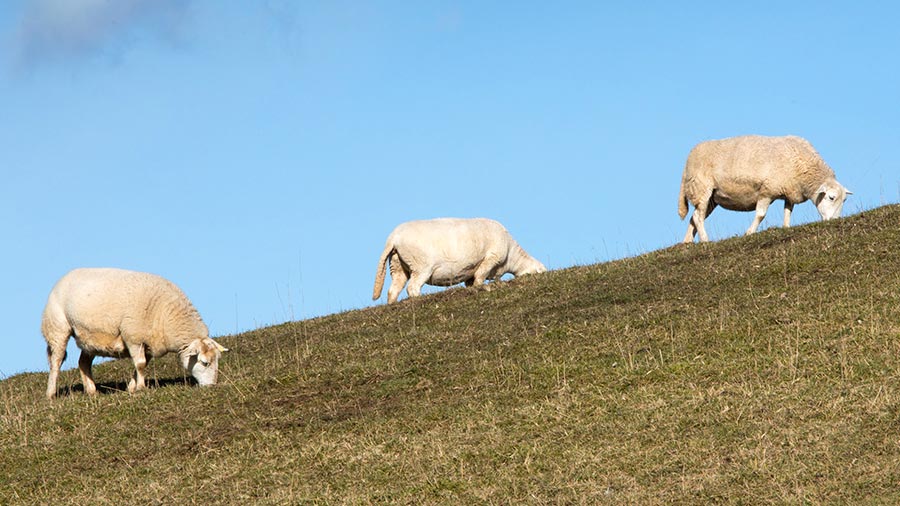Opinion: Trade complexity disadvantages British farmers
 © Tim Scrivener
© Tim Scrivener Following the first small lifting of Covid restrictions, I wonder how many of us charged outside like the cows at turnout – bucking and kicking at the chance to go out and about.
In reality, this has mainly boiled down to the opportunity to sit on a hard seat under an inadequate umbrella to drink something cold in a howling gale and/or arctic temperatures.
Perhaps we have already spent too much time clad in waterproofs and a woolly hat to find this enticing. At any rate, I have managed to hold myself back.
See also: Trade and farm policy enter new era outside the EU
About the author
 Elizabeth Elder
Elizabeth Elder
Columnist, Farmers Weekly
Elizabeth Elder and her husband Jake run sheep and cattle on 235ha of hill ground on the Otterburn Firing Range, Northumberland.
Read more articles by Elizabeth Elder
In many respects, it feels like we are still living in limbo, and not just about Covid restrictions. The future prospects for our business are unclear.
Hill farming is not a “pop-up” and we’ve always looked to the long-term. So this period of uncertainty is disconcerting.
On the impending Environmental Land Management scheme – we know that “tests and trials” are continuing and the pilot is beginning this year, but as yet there has been no guidance on the financial implications of the new schemes for people like us.
Without even the outlines, much less the details, how can we plan for the future?
Worrying report
We probably won’t feel the effects of the new post-Brexit trade arrangements on our business until the main lamb marketing season is under way in the autumn.
However, the recent Office for National Statistics report on trade is worrying.
Despite some recovery from January’s figures, exports to the EU in February were still down 41% on the previous year.
Dairy, chicken and beef exports were all down more than 75%. We may have tariff-free trade, but there are now substantial non-tariff barriers in place.
In March, The Guardian reported that, while previously meat exporting only required a consignment note and a delivery note, this now entails a 26-stage process of certification, documentation and inspection.
If a load is rejected at French customs, delivery may be delayed or it may even be sent back or destroyed. It was reported that around one in five loads were being inspected.
Meanwhile, imports to the UK have simply been waved through – no questions asked – presumably because
a) the UK didn’t have the systems or personnel in place to do anything else; and
b) it probably seemed sensible to avoid food shortages.
Import checks
Checks on imports were supposed to begin in stages from April, but apparently traders and ports were not ready and so the checks have been postponed for another six months.
Physical sanitary and phytosanitary checks on imported animal products will not now take place until 1 January 2022 and importers will also continue to be able to delay making customs declarations for six months after goods are imported, until 2022.
All of this seems to put UK producers at a considerable, ongoing disadvantage. What, if anything, are our leaders proposing to do about this?
After all, these difficulties have resulted directly from the deal they chose and are personally responsible for.
I saw that the prime minister and other cabinet members (notably Liz Truss and Priti Patel) had popped into various farms recently for traditional pre-election photo opportunities.
They all seem to love dressing up as friends of farming on these occasions. But what are they doing to help?
